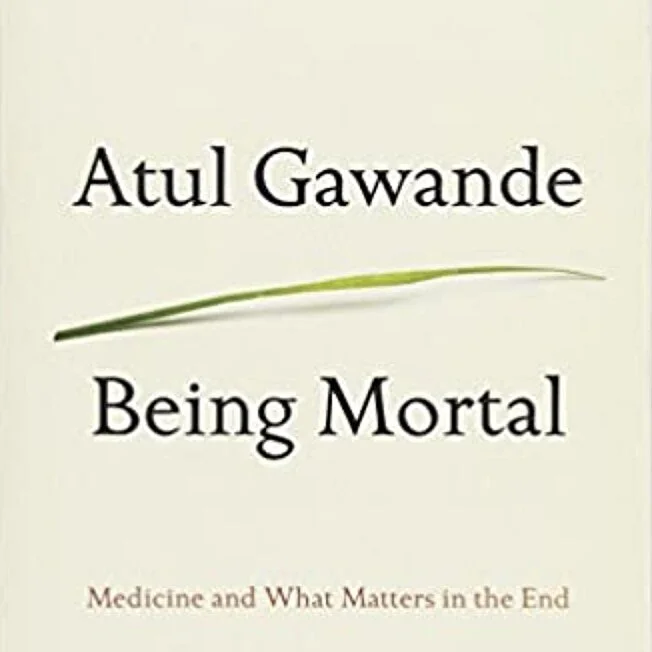Through THick & thin
“When we honestly ask ourselves which person in our lives mean the most to us, we often find that it is those who, instead of giving advice, solutions, or cures, have chosen rather to share our pain and touch our wounds with a warm and tender hand. The friend who can be silent with us in a moment of despair or confusion, who can stay with us in an hour of grief and bereavement, who can tolerate not knowing, not curing, not healing and face with us the reality of our powerlessness, that is a friend who cares.”
VIGIL
You are welcome to share a brief obit for a loved one, or see other’s loving memories:
Being Mortal, by Atul Gawande
How do you talk about death with a dying loved one? Dr. Atul Gawande explores death, dying and why even doctors struggle to discuss being mortal with patients, in this Emmy-nominated documentary. “Aging and dying — you can’t fix those," says Dr. Gawande. This film examines the relationships between doctors and patients nearing the end of life, and how the medical profession can better help people navigate mortality. The ultimate goal, after all, is not a good death but a good life — to the very end.
Produced by FRONTLINE, PBS. This is a must read book and to share with your family. But this video has the author sharing first-hand on his perspective on aging and dying, and how it may shape your plans.
Coping with the loss of your loved one
Coping with the loss of a close friend or family member may be one of the hardest challenges that many of us face. When we lose a spouse, sibling or parent our grief can be particularly intense. Loss is understood as a natural part of life, but we can still be overcome by shock and confusion, leading to prolonged periods of sadness or depression. The sadness typically diminishes in intensity as time passes, but grieving is an important process in order to overcome these feelings and continue to embrace the time you had with your loved one.
Everyone reacts differently to death and employs personal coping mechanisms for grief. Research shows that most people can recover from loss on their own through the passage of time if they have social support and healthy habits. It may take months or a year to come to terms with a loss. There is no “normal” time period for someone to grieve. Don’t expect to pass through phases of grief either, as research suggests that most people do not go through stages as progressive steps.

